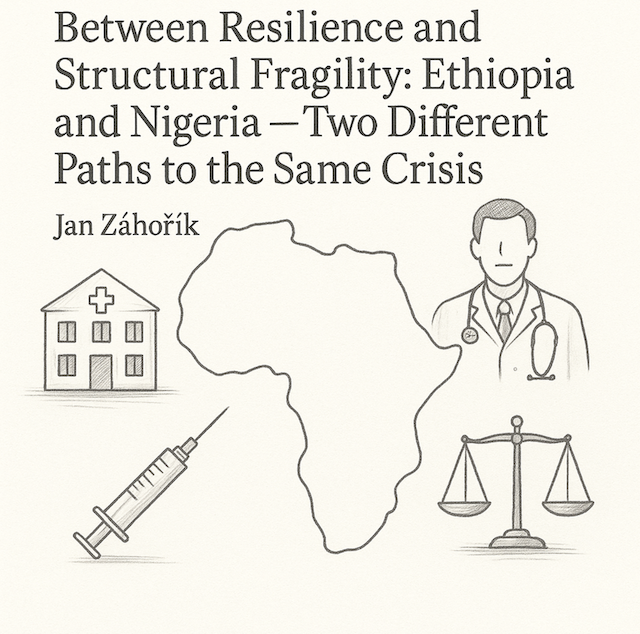On 1st of October, Nigeria was celebrating the Independence Day, independence it gained from the UK in 1960, and on the eve of the national holiday, I was chatting with a dear colleague from the University of Ibadan in Oyo State about what might happen. Originally, the protests were planned in many Nigerian cities with people demonstrating against the inflation, rising prices of basic commodities, and generally socio-economic troubles. Where do these moods come from? What is the basis of that? That is the question easy and at the same time uneasy to respond.
The former government of President Muhammadu Buhari left what many people in Nigeria thought was the worst period of time particularly regarding security related issues, banditry, and generally deteriorating socio-economic climate. Many parts of Nigeria became “difficult” because of high risk of kidnapping, violence, robbery. Still, Nigeria is an oil country, one of the significant producers of oil on the African continent but with the population of around 220 million (which is expected to rise up to 430 million in 2050) it is hardly an oil rich country. Therefore, dreams of many Nigerians to turn Lagos, Port Harcourt or Abuja into something like Dubai still remain only in the sphere of unrealistic visions.
After President Bola Tinubu came to power, subsidies on petrol and electricity were abolished and prices of basically everything began to rise immediately. But for ordinary people, this is seen as another betrayal by the rich. "People are generally angry with the government and accuse President Tinubu of squandering public money to buy his own luxury yacht, new cars and a new mansion," tells me a good friend of mine from Ibadan. Nigeria's financial problems have been deepening for the last twenty-five years. Nigeria is one of the largest oil producers in Africa, yet it is in debt.
Crude oil is being sold out so that it can be bought back refined for general use in a system which favors those who have access to power and leaves behind the majority. To complicate matters even more, it seems that there exist a lot of internal clashes between people who want to reform the system and those who are sitting on power and money. For instance, Nigerian multi-billionaire Dangote has opened a new refinery, the fifth overall in Nigeria, but the previous four ones are out of operation. But even the new one is being boycotted by a network of Nigerian politicians involved in the oil trade and multinationals operating in Nigeria. The reason is very simple. If Dangote’s refinery is able to refine oil, it would bring cheaper oil and petrol to Nigerians and bypass the criminal networks around oil production in Nigeria. This is a narrative one can hear very often in Nigeria.
Nigeria is currently struggling with high inflation, and although wages have risen slightly, people are protesting against the government because most families are struggling to make ends meet. One element which is keeping many families “alive” is diaspora and remittances. Nigeria, just like many other African countries, gets a lot through remittances and this is why so many families tend to send some of their children abroad because the system inside Nigeria does not allow majority of them to climb up in social hierarchy without special links and without corruption.
When one talks to Nigerian colleagues, it is easy to get an impression that many things happen in Nigeria intentionally, for instance, a general narrative one can hear very often is that groups like Boko Haram wouldn't exist if it weren't for people in government who profit from instability. Ordinary Nigerians believe that many members of the armed forces are linked to bandits, militias, including Boko Haram, creating a vicious circle from which there is no escape. I remember talking to a student of the University of Lagos who said she went by bus back home and the bus was kidnapped by the driver plus two other guys sitting in, all the people had to give them mobile phones and money and then they disappeared. There is a zero chance, in the eyes of many, that such criminals would face justice because many people believe the police is collaborating with such people and let them go in exchange for part of the loot.
As a former high-ranking political advisor tells me, at the heart of everything is incompetence. Incompetence in leadership of institutions because people get jobs not based on their merits but on special links, nepotism, clientelism, etc. Before elections, many politicians hire their militias ahead of elections to threaten their rivals and intimidate their voters, often such politicians borrow heavily for their campaigns and then when they come to power, their only interest is to pay off the debt and make money, not to think about the welfare of the society and the development of the country, another narrative one can hear almost on daily basis in Nigeria.
Yet Nigeria aspires to be something like the United Arab Emirates, with many Nigerians travelling to Dubai on a regular basis, recognizing the need to diversify the economy. However, it is far from a functioning economy at present. The socio-economic gap between the very rich and the very poor seem to be widening further. A classic example is Lagos, whose mainland and island parts are now connected by the longest bridge in Africa, built by Chinese companies. While Victoria Island has a growing upmarket Eko Atlantic district with hotels, restaurants and resorts, some parts of mainland Lagos resemble endless slums, where huge numbers of people huddle in piles of rubbish. Bridging these divides and beginning a real process of industrialization will be the long-term task for Nigeria in the 21st century so that it becomes that coveted giant that no longer has only feet of clay.
.png)








